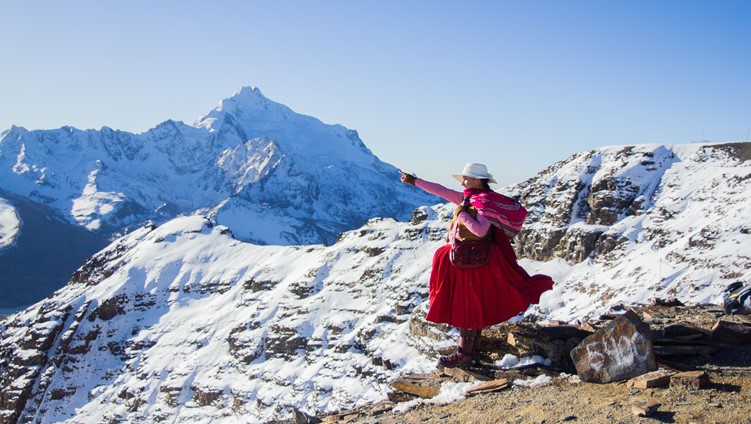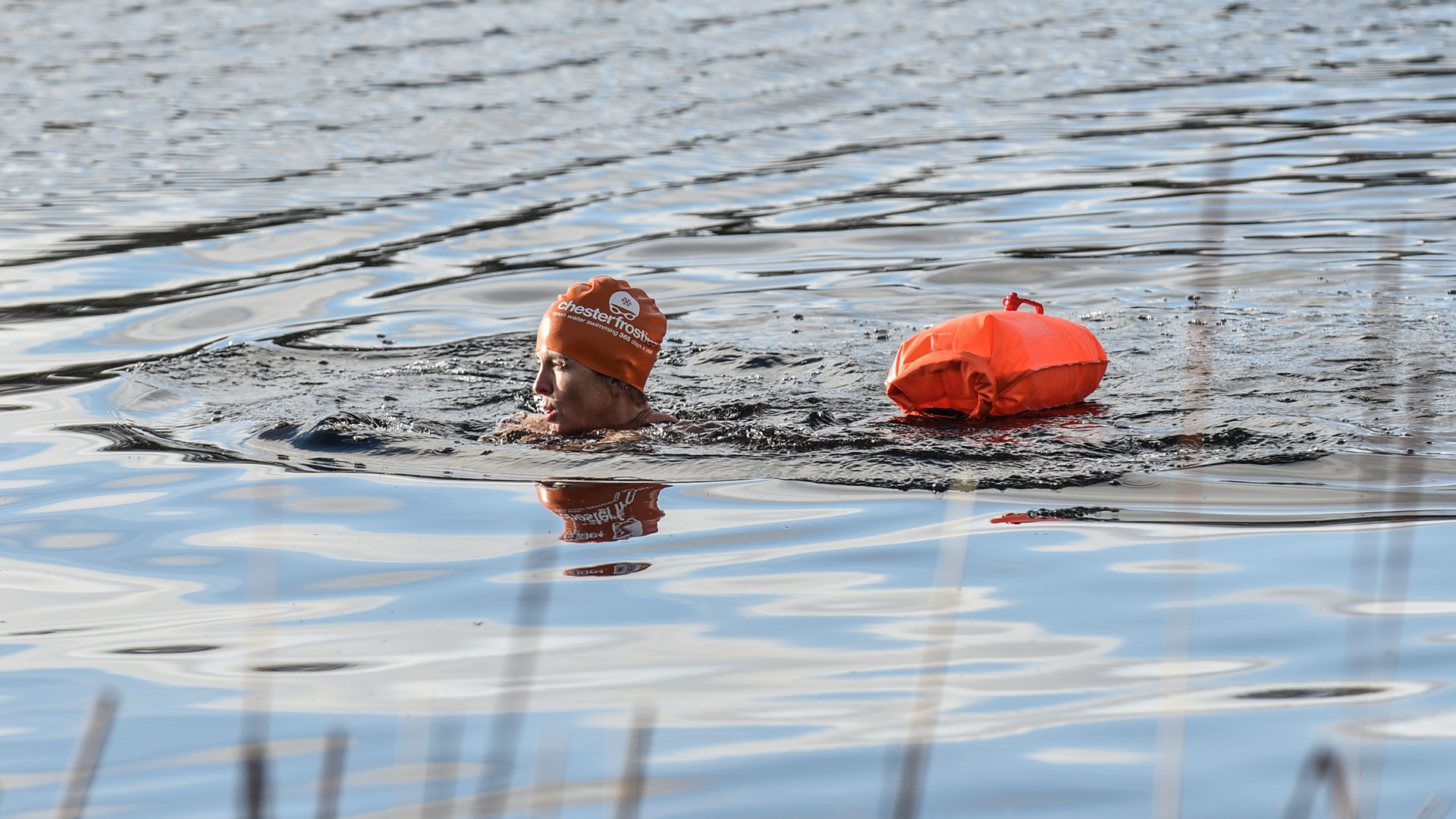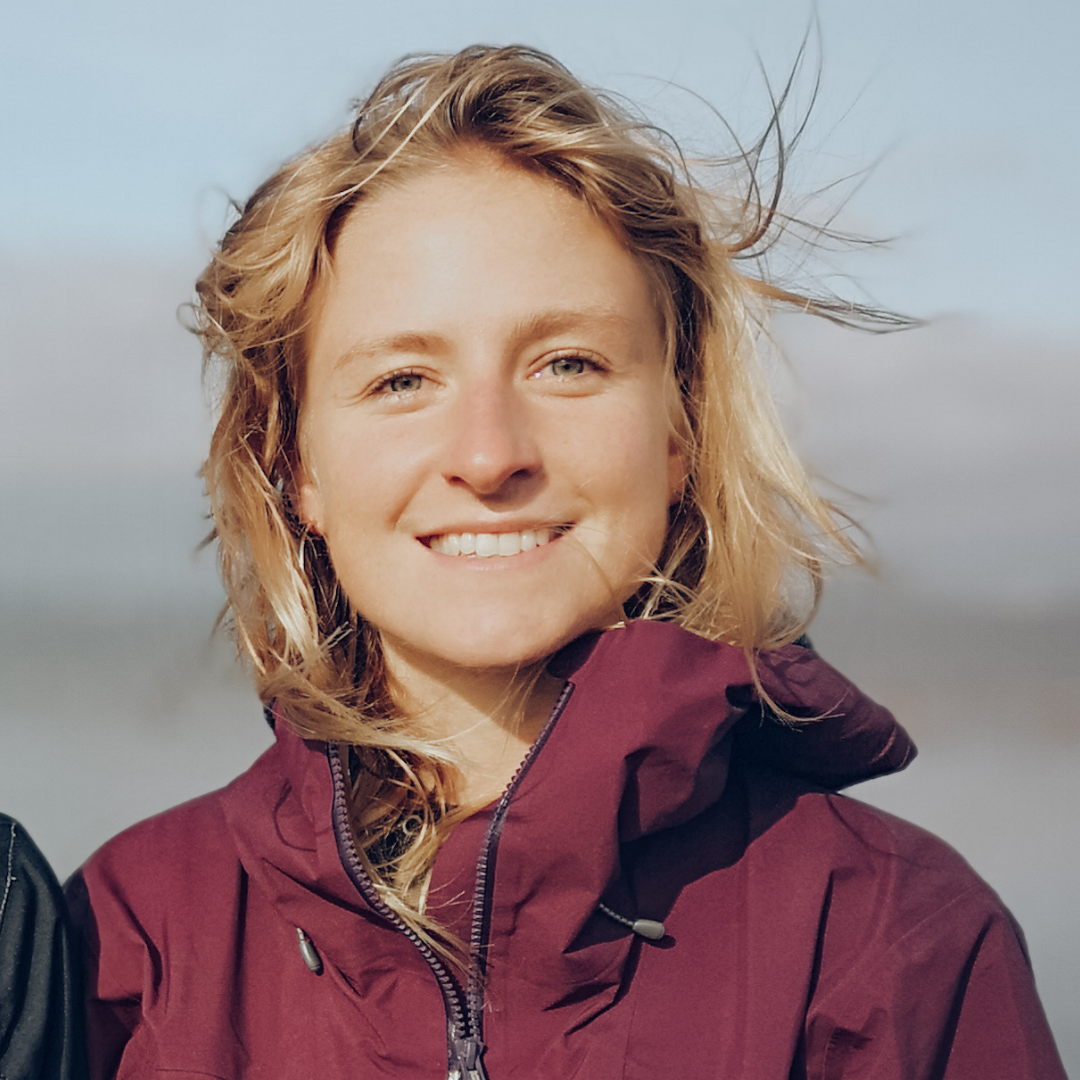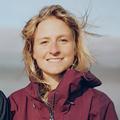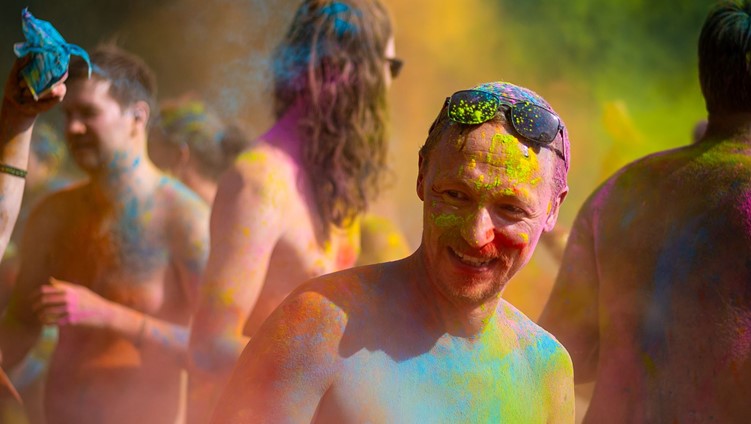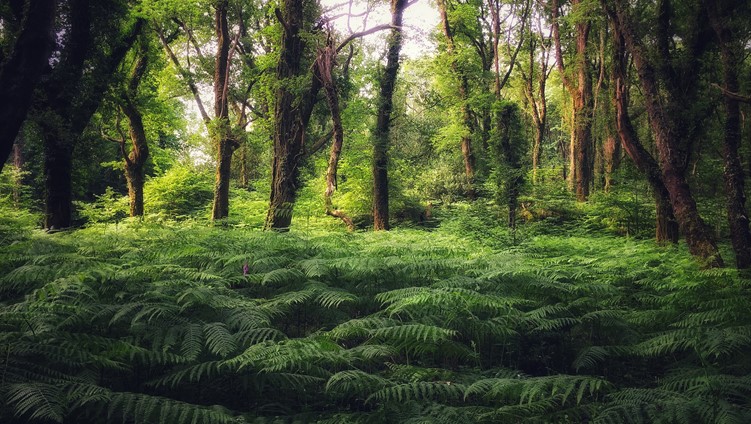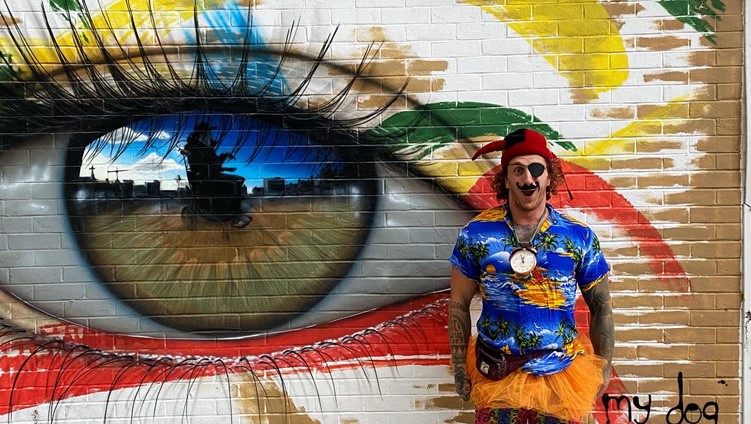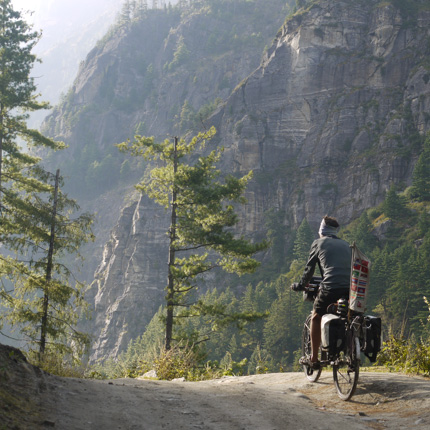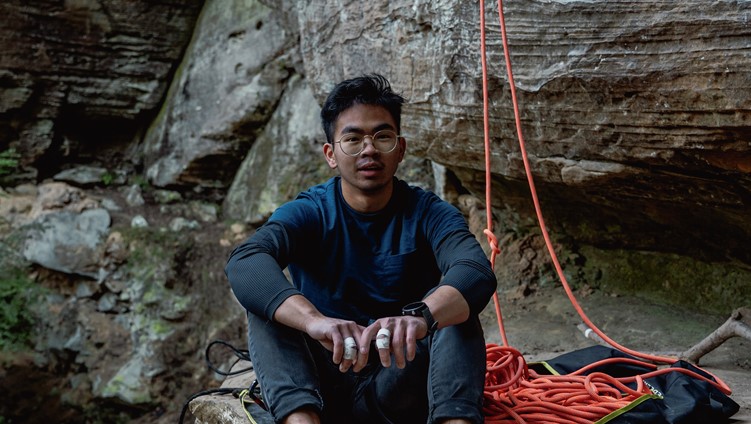
Karen is, of course, an avid outdoor swimmer herself (especially in winter!) which led her to set up the podcast in 2018. Since then she's interviewed guests about iconic swims and personal challenges, the health and wellbeing impacts and finding a deeper connection with the natural world.
We asked Karen how and why she set up the podcast, the advice she’d give to aspiring storytellers and how she chooses the stories she tells.
How do you find your angle and choose which stories to tell?
I don’t really feel like I have an angle! The intention was to give a voice to any wild swimmer who was willing to tell their story. I deliberately showcase women, who in my experience are far less likely to put themselves forward as having something interesting to say.
I am connected to a lot of wild swimmers all over the world on social media. I see whose stories interest me and then approach them and ask them to be guests – this is usually because they are doing something in particular (swimming every day in January), or showcasing an issue (swimming against depression), but it might also be because I have location envy and want to talk to them about where they are swimming. Sometimes I also put a shout out at the end of an episode asking for people to come forward and volunteer as guests – most of the time it is men who respond in this way, which is why I deliberately go out and encourage women to talk to me.
I think everyone who swims outdoors in cold water has a story to tell – why do they do it, is the main question, and everyone has a unique and usually complex answer. I am most interested in that aspect of the story – what it does for their soul – to put it in an artistic way, as well as what it might do for their body, their wider health, their social life, feeling of belonging etc.
I seek to tell the whole spectrum of stories, from people who have just taken their first dip and are hooked, to people who are multi-channel swimmers and well known in our world. I didn’t just want to showcase the people doing amazing things – like Beth French, Sarah Thomas etc. They are incredible and role models for many of us, but what they are capable of can also seem beyond the reach of lots of us, so we also need lots of stories of mere mortals doing amazing (but more achievable) things who more of us can relate to, so I’d say 90% of guests are just ordinary people for whom wild swimming is now a massive part of their lives.
There are so many people doing the same sport in different ways. Just being in different parts of the world creates differences in why and how we do what we do. Some people love events. Other people challenge themselves to go further and further. Others have set up businesses based on their passion. For others, it goes into their art. I guess these are the angles that I find interesting. How did that happen and why?
'We also need lots of stories of mere mortals doing amazing (but more achievable) things who more of us can relate to.'
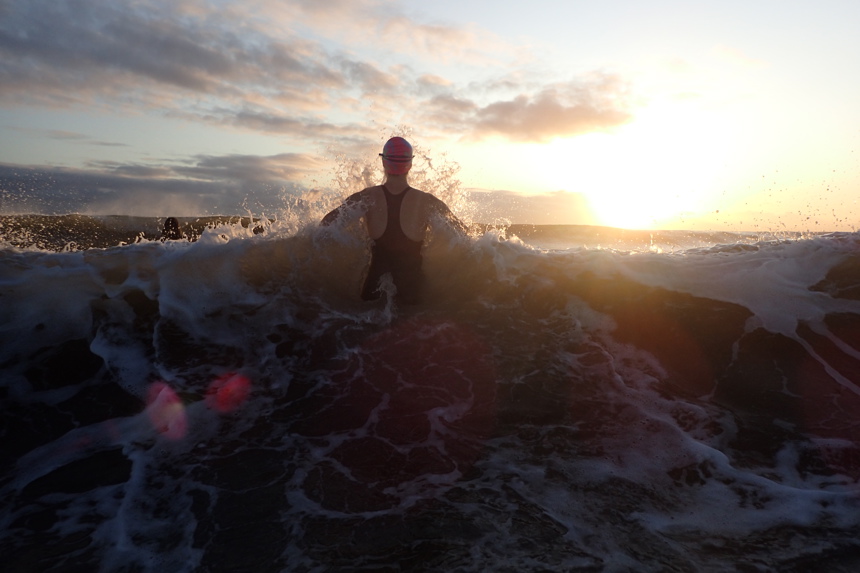
How can we encourage new voices in adventure storytelling to tell those lesser-known tales?
I’d say the easiest way is for people who have an existing platform to share stories is to go out and invite a diverse group of people to speak.
We might be worried that initially this could look like tokenism, but we have to show our intentions through our actions and by consistently giving voice to a diverse group of people, and making that an ongoing clear intention. Eventually, we will be recognised for those values and people who are marginalised and only invited to tell their stories when it is Black History Month or Pride month or whatever, will begin to trust that they are not being asked as a token voice. I think we also need to look at what we mean by adventure storytelling – what do we count as adventure? Does that definition inadvertently exclude some people and what they are doing? If the mainstream idea of adventure is still white men with beards going up mountains then so many more people will not feel that the genre of adventure storytelling includes them and what they are doing. So it is about redefining the genre.
Tell us about an adventure story that's impacted or inspired you?
Gosh, I’ve had about 60 guests so far, so it's hard to choose. I always learn something really valuable from every conversation I have. It’s like the universe has conspired to put the right person in my path at just the right time – if that’s not too a hippyish a thing to say. But, when the podcast was still in its infancy, and I was still learning what I was doing and feeling my way, I got the opportunity to speak to Beth French.
I’d just been to see Against the Tides and came out of the cinema blown away, with so many questions, but convinced that I shouldn’t approach her to speak to her as she was far too important to be on my little podcast. Then the weirdest thing happened – she responded to a shout out I put on Instagram for new guests. I was blown away. Talking to her gave me so much really. Firstly, she is so generous in every single way – in terms of giving her time, her honesty and openness, literally giving me access to her Dropbox to select the photos I wanted to use for the blog! Then there was what she was saying about whose stories get told and how – she was constantly asked questions with the agenda being about being a mum to Dylan – with various angles, but the general implication being that she was selfish and irresponsible to have done what she did because she was a mum. Her view, quite rightly was that no man would ever be asked these questions – so why are women held to different standards? It was so interesting. Also, her decision not to complete the Oceans 7 challenge (spoiler alert!) – to me was so brave, considering how many other people were invested in that. Her reflections on it all were just incredible – a very different narrative about adventure storytelling – and that really opened my eyes to not getting trapped in just a single narrative about what adventure and success look like.
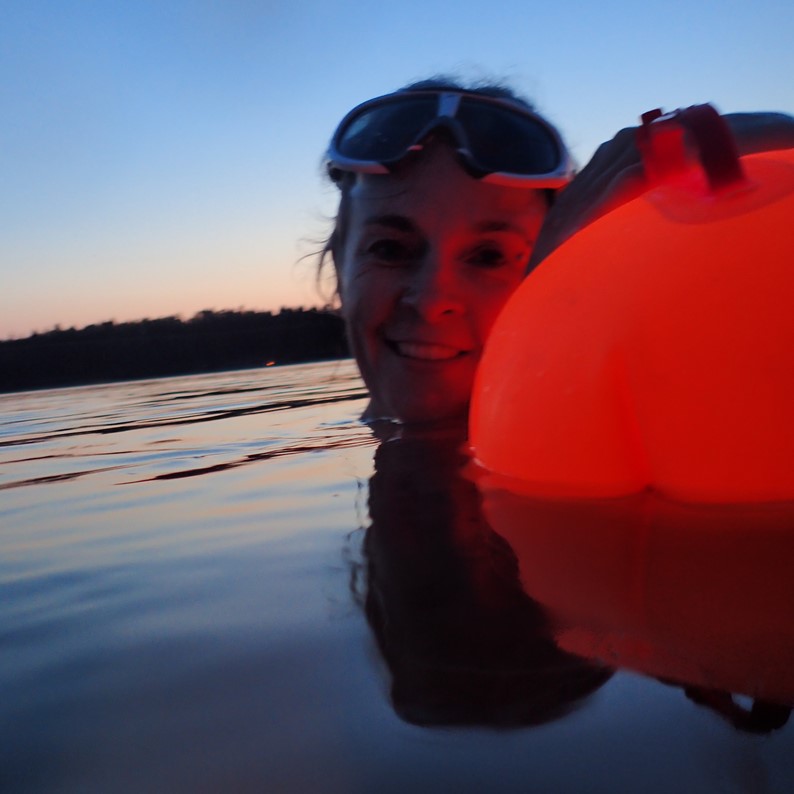
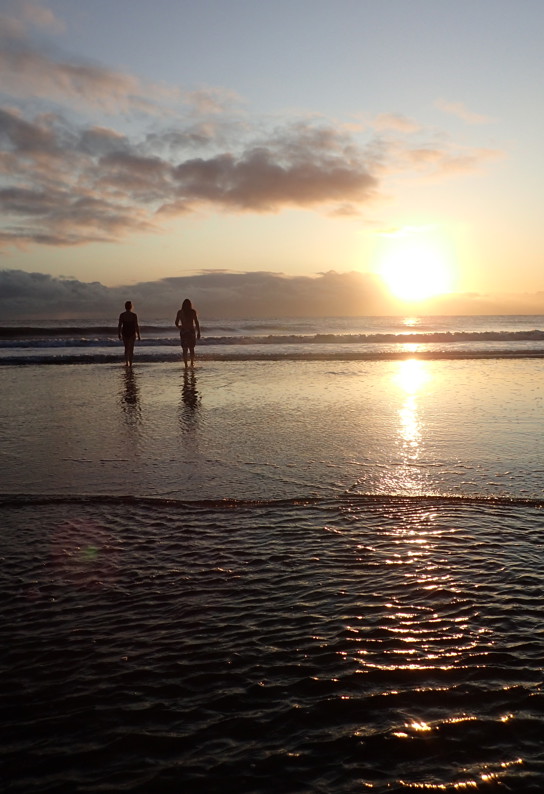
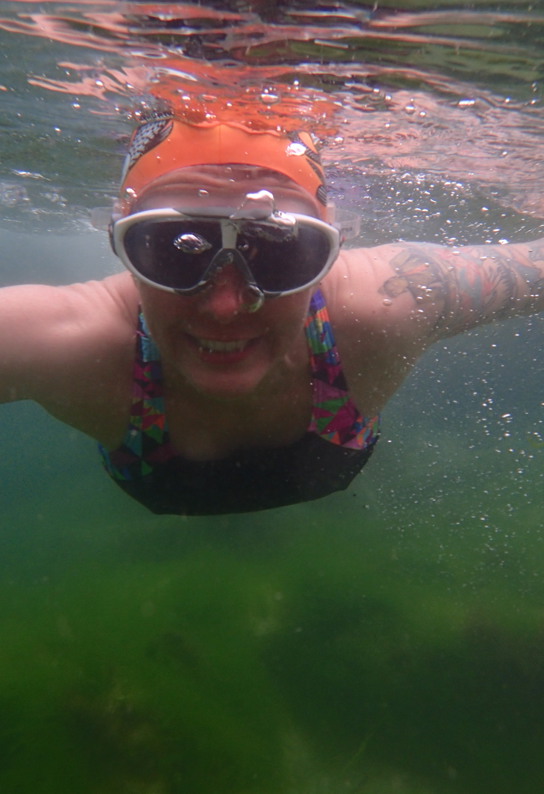
What advice would you offer an aspiring storyteller?
Just start. Don’t overthink it. Follow what interests you, as that will make you a genuinely curious narrator. Don’t be afraid to ask people to speak to you. People like to be asked! Try to recognise what your worldview is, and then seek stories that will challenge and expand that. Don’t just tell stories that simply mirror your own. Find the medium that works for you – there are lots of different ways to tell stories. And be honourable – treat your guests’ stories like you would those of your friends and family – with care and respect. And be prepared to be a bit rubbish at it to start with – don’t be put off – look critically at your own work, and find things to improve upon. Also, don’t let your main intention or motivation be money – expect that this will be a passion, not a money maker. You might get lucky and be able to monetise it. But if you start off chasing that it will be evident in what you do and some of the integrity will be lost in that, I would say. And feel entitled to have a voice, in the best possible way. Don’t wait to be asked to do it. Just do it. You don’t need permission. There are so many ways of getting content out to people now that don’t require any kind of institution to approve you.
What is one item you find invaluable for storytelling?
Curiosity. Ask – all the time be asking questions. Look for the stories that are missing. What isn’t being said, what isn’t being seen, whose voice isn’t out there, what kinds of adventures are not being seen.
'Look for the stories that are missing. What isn’t being said, what isn’t being seen, whose voice isn’t out there, what kinds of adventures are not being seen.'
The Wild Swim Podcast logo was designed by artist Megan, a guest on Karen’s podcast who took her passion for wild swimming into her artwork.
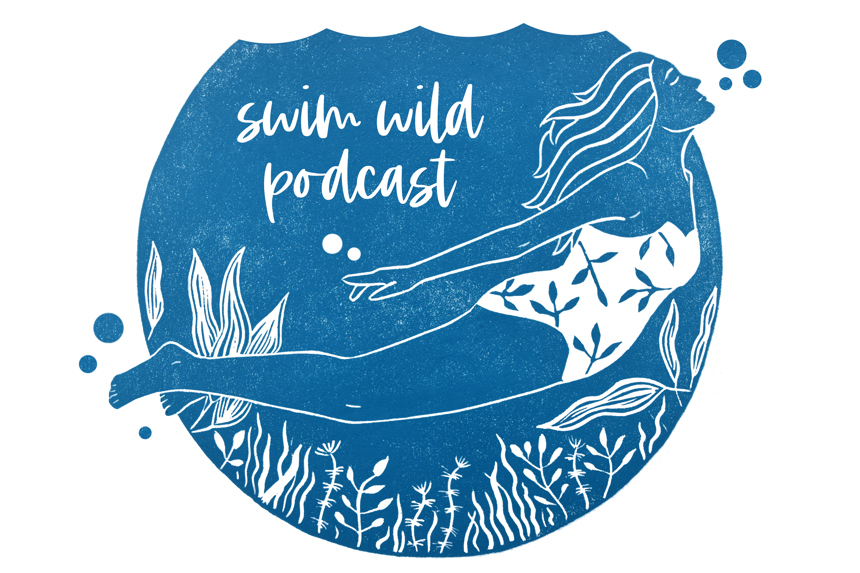
Keep exploring

